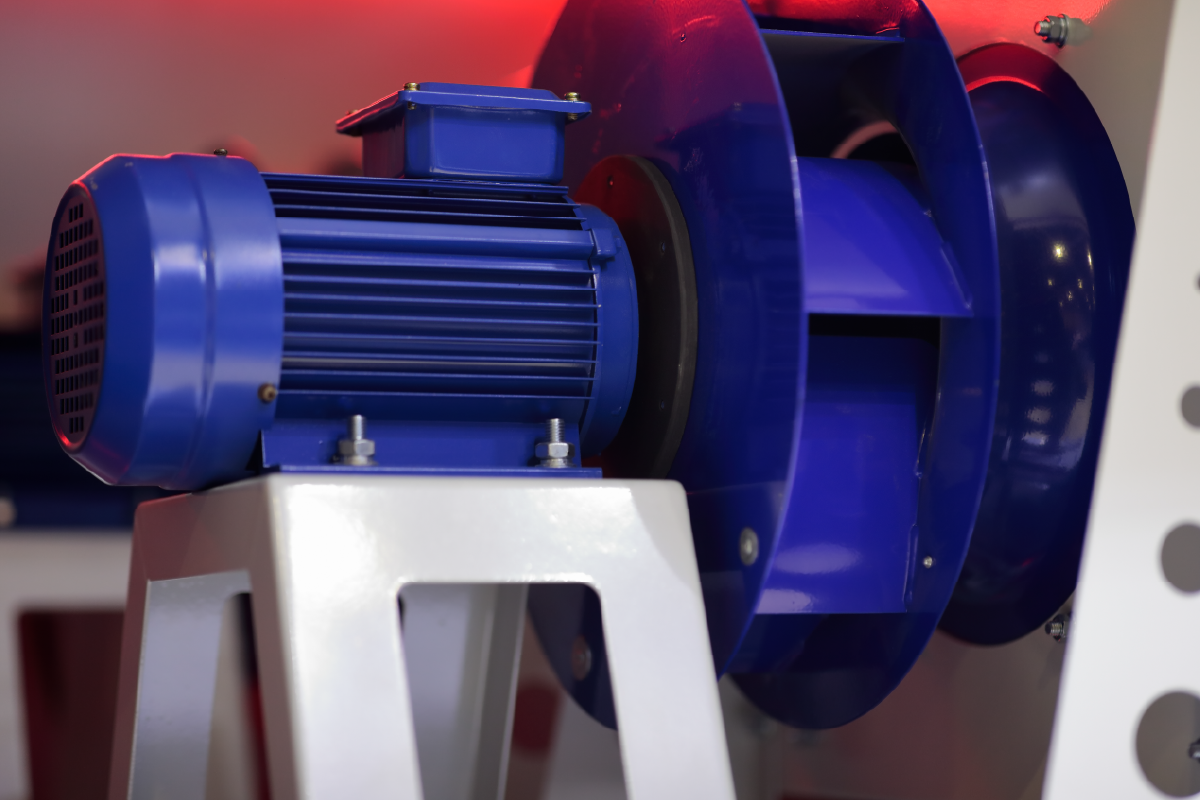
Centrifugal Pump Repair Procedure: The Ultimate Guide
Everything’s bigger in Texas—and that holds true for our strong economy, bolstered by big businesses across diverse industries. Big business means big centrifugal machinery. You depend on your centrifugal pumps and compressors to power productivity and revenue. The rapid rotation of large centrifugal machinery makes it nearly impossible to identify the noise of a failing component or bad bearing in loud manufacturing environments.
So, how do you know if your centrifugal pump is broken? Does your centrifugal compressor need replacement parts, or is that just how it sounds some days?
When troubleshooting centrifugal equipment, you need more than a trained ear—you need a team of heavy machinery mechanics and expert techs on your side. Since 1995, the Cornerstone Mechanical team has kept machinery operating at peak efficiency throughout Texas.
As masters of industrial rebuild and repair services, predictive maintenance and preventive maintenance, our field teams know the difference between a slight imbalance and a poor coupling alignment. If you think your centrifugal pump or compressor needs troubleshooting, follow these steps.
Step 1: Power Down
In most cases, when you suspect something is wrong with any piece of heavy machinery, the best first course of action is to shut that machine down. Avoid potential safety incidents or wasting resources due to an improperly functioning machine by shutting it off before damage can be done.
Trying to diagnose the issue on your own could make the problem worse and accelerate failure. If shutting the machine down isn’t an option for your facility, observing and documenting the issue can help a Cornerstone technician diagnose and solve the issue once they arrive.
Step 2: Call In the Pros
With so many possible causes of machine malfunction and high demands on your time and productivity, attempting to pinpoint the issue yourself can be a time-consuming chore. The best solution to get back to work is to call a centrifugal pump repair company like Cornerstone Mechanical.
With nearly 30 years of experience, our skilled technicians can diagnose, repair or even rebuild your centrifugal pump for enhanced reliability and long-term optimal performance.
Don’t pay your guys to stand around, and don’t waste hours of production time waiting. Instead, call Cornerstone Mechanical at 214-225-7038 or contact us online.
Step 3: Get a General Idea of the Issue or Symptoms
Once we’ve observed and documented the symptoms, we’re better able to pair them with a likely culprit. Here are a few of the most common symptoms found within faulty centrifugal machinery paired with their respective causes.
Intense Vibrations
Intense vibration is the enemy of nearly all heavy equipment, especially centrifugal machinery. Unusually high vibrations can come from a wide variety of sources, including a broken impeller, a clogged impeller or a coupling misalignment. For businesses that rely on clarification centrifugation, an unbalanced bowl is frequently to blame.
Poor Flow
Low flow is a common indicator of a faulty centrifugal pump. Due to the variety of likely causes, you’ll want to call in the pros for a complete inspection.
A centrifugal pump’s poor or limited flow can be caused by:
- Air pockets
- Clogged suction
- Worn, clogged or broken impellers
- Debris
- Vortexing
- Excessive suction lift
- And more
No Flow
If you’re getting no flow at all from your centrifugal pump, any of the issues listed above could be to blame. However, air pockets in the pipes are the most likely cause. That said, it could be something more simple. In some cases, a motor may be set to run in reverse—an obvious but all too common oversight.
Unusual Or Excessively Loud Noises
This is a dangerous category of issues to speculate about. That said, there are a few common causes of louder-than-usual machine operation. Clogged and broken impellers, an unbalanced bowl, air in the pump or even pump cavitation may lead to an increase in decibels.
In some cases, where there’s noise, there may also be friction. Worn bearings and bent/broken impellers or impeller shafts may increase the noise and the heat inside your centrifugal pump.
Step 4: Keep Your Centrifugal Pump Healthy & Functional
At Cornerstone, we think the best kind of emergency is the kind that never happens. Emergency repairs are more expensive, more time-sensitive and more frustrating compared to regular maintenance.
With frequent tune-ups and checkups, your machinery runs more efficiently. That efficiency quickly translates into higher earnings, lower utility bills, greater output and more congratulations from management at the end of the quarter.
Regular preventive maintenance or predictive maintenance ensures that your machine is ready to work hard, day and night, whenever you need it. Get your centrifugal pumps installed properly and then schedule regular maintenance with Cornerstone Mechanical. Call our team at 214-225-7038 and see how we can improve the health of your equipment.
Didn’t see your kind of equipment mentioned in this article? No worries! With the latest technology, decades of experience and highly trained technicians, we can work on just about anything. Keep your doors open, your machines humming and revenue flowing with Cornerstone Mechanical’s suite of maintenance services.
